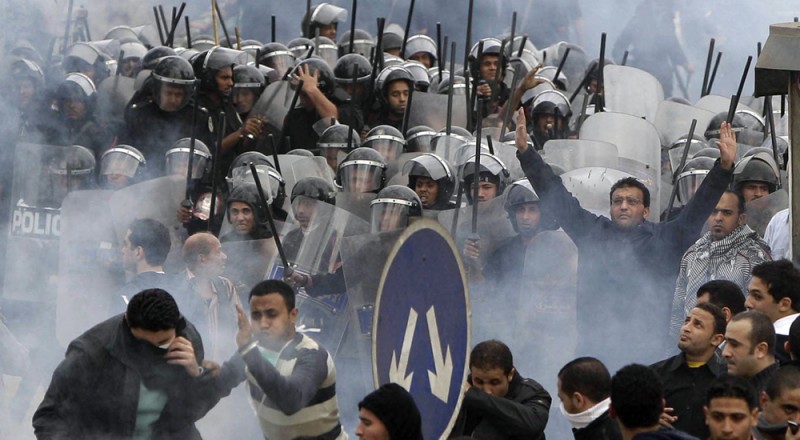Alwaght – A wave of protests
in Egypt and other countries has been
launched, as the Egyptian
army commanders
under the President Abdel Fattah el-Sisi
beat the war drums and make attempts to take part in theground
forceattack in the framework of
the Saudi-US invasion of Yemen,
leaving thousands of injures and martyrs, most of them innocent
women and children. However, experts and political
observers warn against dangerous consequences and implications of this
belligerent act for the future of Egypt in all fields, including military,
political, social, economic, security and tourism.
The
most important consequences of
Egyptian army involvement in Yemen may be
considered as follows:
1- Replication of the scenario of Egypt's
military involvement in Yemen in 1960s
during the presidency
of Gamal Abdel Nasser, which inflicted heavy casualties on Egyptian military
forces. Abdel
Fattah el-Sisi is well aware that his popularity would decline as a result of
his participation in the aggression against Yemen, as did Nasser's popularity
after his attack against Yemen.
2. Participation
of Egyptian military in aggression against Yemen would lead to weakening and
collapse of the Egyptian army which is the backbone and the basis of the
security in Egypt, while Egypt is currently in difficulty addressing its
domestic issues.
3 - Observers
believe that the Egyptian participation in the war against Yemen is in the
framework of a western-Israeli backed conspiracy aimed at undermining the
armies, especially the armies of the Arab region which plotted against Iraqi
and Syrian army in the past few years. Now, it is the Egyptian army’s turn to
be attenuated, as these armies are thought to be the tip of arrows encountering Israeli
regime.
4. When
the Egyptian army
gets trapped in the military aggression on Yemen on the pretext of
protecting the security of navigation in the Red Sea and the Strait of Bab
el-Mandab, this would make way for terrorist groups, particularly in the Sinai
Peninsula. Consequently, there would be rising crimes against Egyptian
citizens, the same as the events that are taking place in Syria and Iraq.
5. Considering
the rising tensions between people and government, resulted from economic
problems,It seems
natural that the Egyptian military involvement in the war against Yemen would
bring about a security risk, and the security and stability of Egypt might be
undermined or even lead to another popular revolution that can possibly topple
the el-Sisi regime, the same way that happened to former President Mohamed
Morsi. What is more, the Egyptians have recently condemned the Saudi-led
aggression in a demonstration staged in front of the Saudi Embassy in Cairo and
called the Egyptian army not to get involved in the attacks.
6. Political
observers believe that involvement of the Egyptian army in the war against
Yemen would make the ground for penetration of terrorist groups into the
country and will threaten the vital sectors of the Egyptian economy, including
tourism that Egypt relies on its revenues. Egyptian
officials should note the fact that tourism is an essential factor in the
Egyptian economy, the country which is dealing with different crisis, loss of
tourism sector is a serious threat to its security, stability and future.
7. After
opposition from many countries, including Pakistan, to send ground troops to
participate in ground attacks against Yemen, now Egypt's army is in difficult
situation as the army's involvement in the invasion of Yemen will lead the Egyptian to a
war of attrition, but the current situation in Egypt, in the light
of combating the terrorism, and countering foreign threats, do not allow for
engaging in the attacks, especially in the Sinai and Egypt's western border with
Libya where terrorist groups are very active.
Considering
the risks and consequences, the Egyptian leaders and commanders must take all
aspects into account especially security and political wisdom and past
experience, and avoid getting involved in another war in Yemen; instead of
getting Egyptian youths into the war, the Egypt administration ought to think
about securing livelihood and economic needs of the Egyptian people; not a war
that only serves the enemies of the Muslim Ummah. Further, we must not forget
that the bloodshed in Yemen, is the blood of Muslims and Arabs, whether an
Egyptian or a Yemeni citizen.Therefore,
it is better to deal with the enemies of Islam and the Muslim Ummah, especially
the Israeli regime, rather than serving the regimes such as Saudi Arabia that
has turned to a warmongering state. Nevertheless, the countries and peoples of
the Middle East, away from the West and foreign intervention, are in urgent need for
unity and solidarity to address the regional crisis.



























